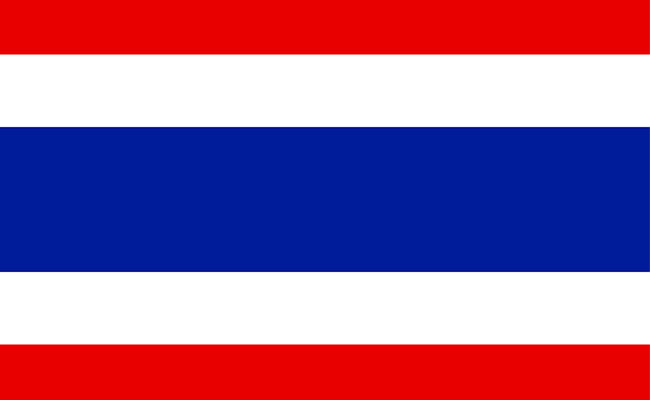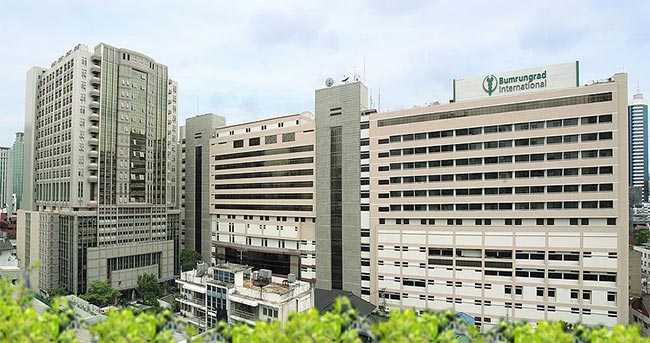Most people don't relocate or travel to Thailand expecting to have a baby. But hey, life happens.
- Perhaps you relocated as an expat looking forward to retirement in the sun, but ended up finding romance, marriage and eventually a child.
- Perhaps you flew to Thailand for holiday and didn't realise that your baby would be arriving prematurely.
- Perhaps you sowed your oats on holiday and, nine months later, have found out that those oats became a baby.
Whatever your situation, you might be wondering about the status of your child.
There are a number of scenarios to cover, including a baby born to foreign nationals in Thailand, a baby born to one foreign national and one Thai national, and a baby born to foreign nationals with permanent residency.
And then there's babies born to Thai nationals living overseas, which also isn't quite as straight forward as one might think.
So let's look at these different scenarios and determine what status your child will inherit as a result of being born in Thailand, or to a Thai parent(s) outside of Thailand.

A Child Born to Foreign Nationals
Unlike some countries in the world, if you are both foreign nationals and your child is born in Thailand, your child will not gain Thai citizenship, residence, or any other rights given to a Thai national.
It doesn't matter if you both have work permits, business visas or any other type of official document, your child will not gain Thai citizenship or related rights.
This is because Thailand follows a nationality doctrine called “jus sanguinis”, which roughly translated means ‘right of blood'.
When the baby is born in a Thai hospital, there will be some notation on the birth certificate that stipulates the status of the child and the fact that the child is not of Thai nationality/citizenship.
There is, however, one exception to this rule…
A Child Born to Foreign Nationals with Permanent Residency
If a foreign national couple, both with permanent residency, have a biological child, the child will be granted Thai citizenship.
Permanent residency is quite difficult to obtain, and therefore there are probably very few Western foreign couples who would fall into this category. If you do fall into this category, it will be interesting to hear from you and your experience with this process.
A Stateless Child (Born to Foreigners)
There is one other circumstance where a child born of foreign parents in Thailand may be able to gain Thai citizenship. And that is if a child is born stateless.
By stateless we mean not belonging to a state/country, so having no official citizenship. In this situation, the parents would need to seek legal advice and go through a number of hoops to obtain this for the child.
Indeed, if we look to the Hill Tribes of Thailand we see a case in point. Many of these communities have gone through and are still going through this process of registering stateless children.
Many of the Hill Tribe peoples can trace their bloodline to outside of Thailand. However, their ancestors settled in Thailand due to displacement or territorial change over the years.
Many of these people do not have official documentation such as birth certificates or passports. This makes it extremely problematic to obtain Thai citizenship for a child, because not only is the child stateless but so too are they. They may not be able to prove their origin either.
You may remember last year when 13 children from the Wild Boars football team got stuck in a cave in Chiang Rai province (northern Thailand). Many of these children were children of Hill Tribe families. After their ordeal, those without permanent status were awarded Thai citizenship.
A Child Born to a Foreign National & Thai National
In the case of a child born to a Foreign national and a Thai national in Thailand, the child automatically gains Thai nationality. This status will be stipulated on the birth certificate provided by the hospital. The parents can then go forward and obtain the child a Thai passport.
For more information on obtaining a passport for your Thai child, please read this post here.
In the case that a Thai national is married to a foreign national and living overseas, the child will be granted Thai nationality due to the nationality of the Thai parent. However, this doesn't happen automatically by descent. To be registered as a Thai national, the child will need to obtain a Thai birth certificate from the Thai embassy in that country.
Without a Thai birth certificate, the child cannot be registered on a Thai House Registration document (Tabien Baan – ทะเบียนบ้าน), or get a Thai passport (หนังสือเดินทาง) or ID card (บัตรประชาชน) issued. Note that Thai children aged 7 years and above are required to have identification cards, so no need to worry about that until a number of years down the line.
A Child Born to Thai Nationals
Of course, it goes without saying that a child born to Thai nationals – even if those Thai nationals are living abroad, or if one is living in Thailand and the other is living abroad – will be eligible for Thai nationality.
However, even if both parents are Thai nationals, they must still go to the embassy in that foreign country and obtain the Thai birth certificate for their child. Only then will their child officially gain their Thai nationality.
—
I think I've pretty much covered all the common scenarios. But if you're circumstances are not covered in this post and you have a question about a child's status, leave your question below and I'll get to it as soon as I can.
More Tips for a Better Life in Thailand
Send Money to Thailand:
Use Transferwise. It is fast, cheap, and gives you the market exchange rate. Me and the majority of my readers are using it.
Get Good Health Insurance:
Start with a quick quote from Cigna. Then compare my other recommendations here.
Improve Your Thai Skills:
Learning Thai makes life here easier and more fun. I use Thaipod101. It is free to get started & easy to use.
Protect Your Online Privacy:
A VPN protects you against hackers and government snooping. I always use one. You should too. Read why here.
Last Updated on



Janine says
Nov 20, 2022 at 1:20 pm
TheThailandLife says
Nov 21, 2022 at 3:26 am
JamesE says
Nov 21, 2022 at 3:29 am
Kevin Elliott says
Nov 28, 2022 at 5:09 am
niko says
Oct 31, 2022 at 5:09 pm
TheThailandLife says
Oct 31, 2022 at 5:24 pm
Russell says
Mar 14, 2022 at 3:09 pm
Kevin says
He will still be classed as Cambodian even if he was born in Thailand. The only way would be if your friend had a Thai birth certificate issued by the local Amphur.
He will be subject to the 90 day reporting.
He could always write to the King ?? It’s been known before.
Mar 14, 2022 at 7:24 pm
TheThailandLife says
Mar 14, 2022 at 7:48 pm
Mohamud says
May 30, 2022 at 7:19 pm
Kevin says
You will need an Education Visa to study in Thailand.
The first thing to keep in mind is that in order to apply for a Non-Immigrant ED Visa, you must have been accepted into a full-time educational course, training programme, or internship in Thailand.
When applying for a Non-Immigrant ED Visa, you will need to provide a copy of your passport or travel document valid for at least 6 months from the scheduled arrival date in Thailand, a finalized visa application form, 2 passport-sized photographs (4 x 6 cm) and a completed TM 87 Thai Visa Application form.
The following documents must be sent by the school or institute where you will be studying as proof of enrolment (receipts of tuition fee payments), course summary and school registration papers.
You must also have an official letter from Thailand’s Ministry of Education or other relevant sub-authorities approving of foreign student enrollment as well as a copy of the academic foundation’s registration certificate when applying to a private educational institution. If you are already enrolled in a class, you must have a copy of your college record as well as your Student ID.
May 31, 2022 at 1:55 am
Derek says
Feb 06, 2021 at 10:33 pm
TheThailandLife says
Feb 07, 2021 at 4:42 am
Derek says
Feb 09, 2021 at 5:15 am
Boonmar Davis says
Dec 21, 2020 at 8:22 am
Stevo says
Jun 10, 2021 at 10:38 am
Daniel Finnegan says
Jun 10, 2021 at 5:14 pm
TheThailandLife says
Jun 10, 2021 at 5:24 pm
dreamcatcher says
Years later, at age 24, he travelled to Thailand and decided to work there. The staff of the Adoption Center at the Department of Welfare in Bangkok helped him get an ID card with the appropriate house registration details. Their concern was that he might be called up for military service but this never happened nor was it ever an issue.
Jun 10, 2021 at 6:01 pm
TheThailandLife says
Jun 13, 2021 at 4:52 am
Daniel Finnegan says
Having served in the British Army For nearly 20 years I can honestly say the Thai army would have to dig deep into the barrel to want someone with my terrible knees
Jun 13, 2021 at 5:01 am
Davide says
Sep 26, 2020 at 8:44 pm
TheThailandLife says
Sep 28, 2020 at 3:02 am
Michael says
Sep 04, 2020 at 5:02 pm
James E says
Sep 05, 2020 at 2:00 am
Stephen richards says
Jul 07, 2020 at 2:31 pm
TheThailandLife says
Jul 07, 2020 at 3:49 pm
Daniel says
Apr 05, 2020 at 9:42 pm
TheThailandLife says
Apr 06, 2020 at 4:25 pm
gordon taylor says
Dec 21, 2019 at 3:56 pm
TheThailandLife says
Dec 21, 2019 at 6:05 pm